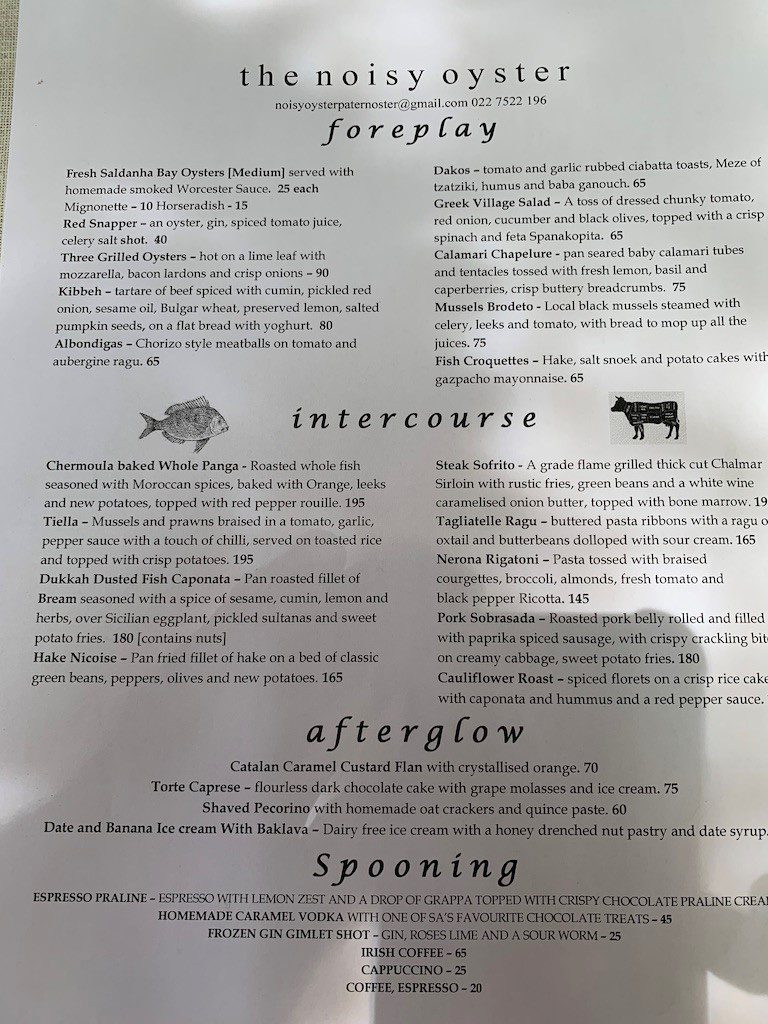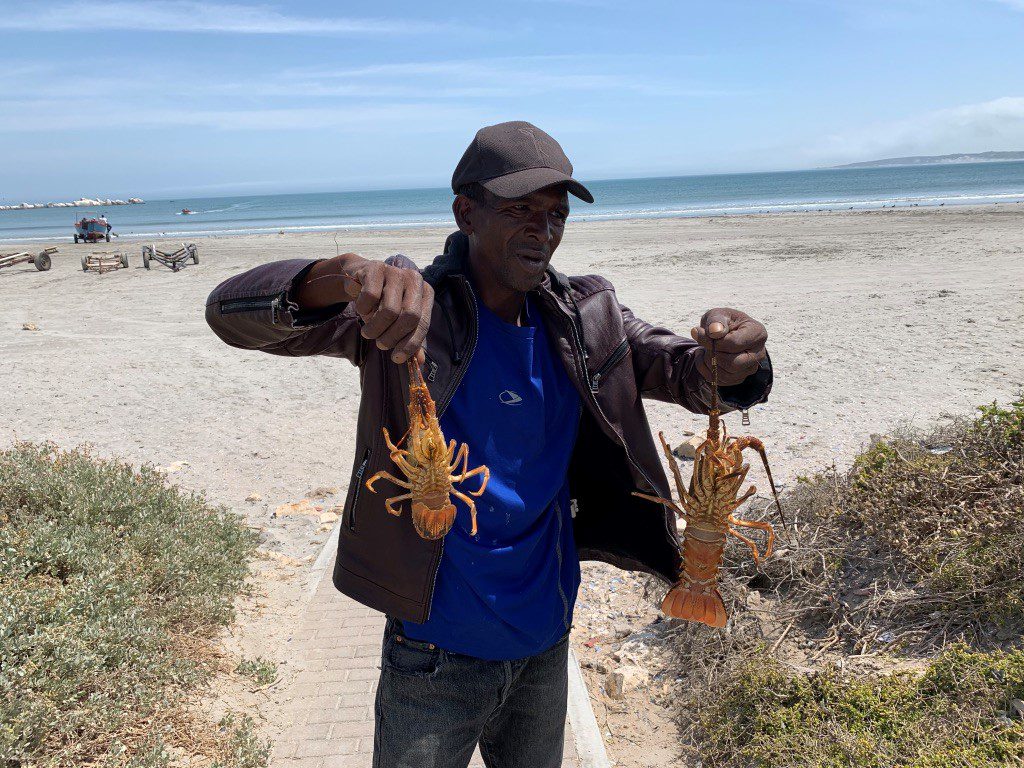WULF UTIAN’S LETTER FROM CAPE TOWN
FEBRUARY 2020
BACK TO SCHOOL
Several of you responded to my last “free-of-politics” newsletter saying you enjoyed political comment. Let me enter the water gently by quoting the following from Hannah Arendt in her book The Origins of Totalitarianism (Harvest Book – Harcourt Inc.): “The ideal subject of totalitarianism rule is not the convinced Nazi or convinced Communist, but people for whom the distinction between fact and fiction (i.e. the reality of experience) and the distinction between true and false (i.e. the standards of thought) no longer exist.”
I am certain this should resonate with you, wherever you live.
Moira and I have been back to school – attending multiple lectures and workshops at the University of Cape Town Summer School 2020. Summer School has been a tradition for many years and subjects range from the arts and humanities, to politics, science and medicine, music, geology, anthropology, and more, all given by nationally and internationally recognized authorities over a period of three weeks. We have enjoyed meeting and interacting with the attendees, often as much as listening to the presentations. People attend from all over the world. Just one photograph is all I think you will need for me to convince you that UCT probably is the most beautifully situated university campus in the world.

The arts are alive and well in Cape Town. We enjoyed an outstanding performance of Kinky Boots at the Fugard Theater that would have held its own anywhere in the world. Moira took the opportunity to engage the leading actors after the show.

We also enjoyed an evening with the Cape Town Philharmonic Orchestra with a program of Rossini, Mozart and Dvorak. The old Cape Town City Hall has been refurbished and is beautiful.

Cape Town achieved another world record, hosting “The Match in Africa”, the
exhibition tennis match between Roger Federer and Rafael Nadal. Organizers confirmed the official attendance figure as 51,954, a world record crowd for a tennis match. I had predicted the outcome and should have bet money on it because Federer and Nadal, although playing well, were certainly not going to take any chances on getting injured. While we really enjoyed the vibe of the large crowd and the additional show acts, the funniest part of the evening was a doubles match between Federer and Bill Gates against Nadal and Trevor Noah. Very amusing. The event raised over $3.5 million for Federer’s foundation dedicated to uplifting underprivileged children in Southern Africa through sport and education. The event also highlights the dichotomy of the first world side of South Africa in its successful hosting of so many international events, as opposed to its third world side and multiple problems.


With the surge of anti-Semitism worldwide, an interesting front page report from the leading South African Jewish newspaper, the South African Jewish Report (Thursday January 30, 2020), provided the heartening news that the number of anti-Semitic incidents dropped to a 15 year historic low in 2019, according to the latest figures issued by the South African Jewish Board of Deputies (SAJBD). We have noticed that Jews in South Africa have no problem walking home from Synagogue on Friday nights with their Kippahs on or their Tallas around their necks. Thank goodness there is at least one thing that is worth emulating from South Africa.
We explored the lower west coast of the Western Cape for the first time in at least 15 years. The first thing that strikes you is how flat and desolate it is compared to the east coast and the Garden Route.

There is a place near the South African Air Force base at Ysterplaats that was the site of a phosphate open pit mine, that is until they found fossilized bones. The fossil site of Langebaanweg, approximately 150 km north of Cape Town (a 90-minute drive), is located in the West Coast Fossil Park. It has turned out to be the largest and densest area of fossilized bones anywhere in the world, with skeletons and skeletal parts being identified from animals going back 5-10 million years, way before any of our human ancestors.


Amongst the remarkable findings is that although there are no bears in Africa, they were present over 5 million years ago, as were other weird beasts like the long-horned short-neck giraffe, depicted in the photo below that compares these animals in size to a modern homo sapiens.

Further up the west coast we spent two delightful days in Paternoster, somewhere we had not visited for nearly two decades. First impression, it has grown. Development seems to rear an ugly head in many places. Good news is that everything built has conformed to the style of the early fishermen houses that were the first to be renovated. Second impression, Paternoster remains a foodie’s delight. We had outstanding meals at the Abalone Boutique Hotel, a five-star establishment where we had a lovely suite, and at the eclectic Noisy Oyster restaurant with a silver fish main course that was… words are inadequate. Look at the photo, but pity you cannot smell or taste the dish. By the way, check out the headings on the menu. An FYI – the fish on the plate was brought in on a small fishing boat just a few yards away and perhaps 30 minutes before.



The old part of Paternoster remains unchanged , with fishing boats on the beach and the white painted cottages, all resembling a small town on a Greek island.

The fishermen catch South African rock lobster, really a crayfish that is called ‘kreef’ out here. Fishing them is illegal, but it has not stopped a thriving trade of people driving up, making their purchases like illegal drugs, and driving off in their Mercedes, Audis, Lamborghinis and Ferraris.

We explored an area outside Paternoster called Tieties Bay. When I asked Siri for directions to Tieties Bay, she responded “you want to go WHERE?!” The area is pretty desolate, but has wonderful rock formations and deserted beaches, all making for a spectacular but lonely camping site.


Let me conclude with another ‘political’ observation, this time quoting from Crispian Olver’s new book about divisive politics in Cape Town, A House Divided – The feud that took Cape Town to the brink (Jonathan Ball, 2019), when he reflects on how incompatible the political and administrative domains are in government:
“Politics is about the constantly shifting terrain of public opinion and the memes politicians trade in to cultivate it. The currency of politics is loyalty – who’s with you and who is against you, and whether your actions gain political leverage or not.
The administrative world has a different set of imperatives – it’s hierarchical, rule-based, and focused on defined outputs, and on the budget and staff needed to achieve them.
These two worlds intersect in the state, and we tend to take for granted that they can easily coexist. In cities, the interface is the city manager and executive directors. They have to hold the line against irrational political decisions, because further down the hierarchical line officials just take instructions. And yet the way we appoint these senior managers and the way we support them make them extremely vulnerable to political pressure.”
And what applies to Cape Town, applies to South Africa, Israel and the United States, so I am sure that this too should resonate with you wherever you live.
Stay strong!
Wulf
Wulf Utian
Cape Town
February 16, 2020
